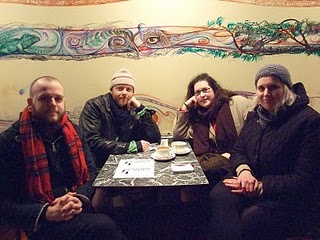The BWB Texts Collection is one of the hidden gems in our online collections line-up that we LOVE and think more of you should know about.
Why? Well in a nutshell the collection brings together a diverse group of short and accessible eBooks on some of the biggest and most important issues facing New Zealand. Some of the topics covered include: the housing crisis, climate change, public health, child poverty and inequality. Dive in to discover stories, insights and analysis by some of New Zealand’s best writers and commentators.
The BWB Texts Collection is also easy to access and use. All you need is your Wellington City Libraries card and a device to read on — PC, laptop, tablet or smartphone. Ebooks have unlimited simultaneous users and are read in your web browser so there is no waiting or downloading – simply click on any title and read!
Some just released titles that you might like to check out are:
 Imagining Decolonisation – contributors include: Rebecca Kiddle, Bianca Elkington, Moana Jackson, Ocean Ripeka Mercier, Mike Ross, Jennie Smeaton and Amanda Thomas
Imagining Decolonisation – contributors include: Rebecca Kiddle, Bianca Elkington, Moana Jackson, Ocean Ripeka Mercier, Mike Ross, Jennie Smeaton and Amanda Thomas
“Decolonisation is a term that alarms some, and gives hope to others. It is an uncomfortable and often bewildering concept for many New Zealanders. This new BWB Text seeks to demystify decolonisation using illuminating, real-life examples. By exploring the impact of colonisation on Māori and non-Māori alike, Imagining Decolonisation presents a transformative vision of a country that is fairer for all.” (from title description page)
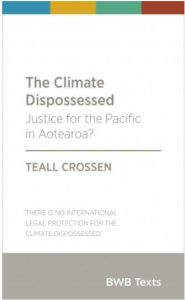 The Climate Dispossessed: Justice for the Pacific in Aotearoa? – by Teall Crossen
The Climate Dispossessed: Justice for the Pacific in Aotearoa? – by Teall Crossen
“The world is heating up beyond the capacity of some countries to cope. Entire populations of Pacific islands are threatened, jeopardising the sovereign rights of these countries and the security of the region. This book explores what a just response to the risk of climate change displacement in the Pacific could look like.” (from title description page)
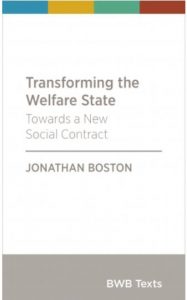 Transforming the Welfare State: Towards a New Social Contract – by Jonathan Boston
Transforming the Welfare State: Towards a New Social Contract – by Jonathan Boston
“Eighty years ago, New Zealand’s welfare state was envied by many social reformers around the world. Today it stands in need of urgent repair and renewal. One of our leading public policy thinkers asks: What might the contours of a revitalised ‘social contract’ for New Zealand look like?” (from title description page)
 The Broken Estate: Journalism and Democracy in a Post-Truth World – by Mel Bunce
The Broken Estate: Journalism and Democracy in a Post-Truth World – by Mel Bunce
“A lack of knowledge about the world can be a very dangerous thing…Drawing upon the latest international research, Bunce provides a fresh analysis that goes beyond the usual anecdote and conjecture. Insightful and impassioned, this short book provides a much-needed assessment of the future for New Zealand journalism in a troubled world on issues of justice, tikanga, trade-offs, finance, futurism, adaptation, and more.” (from title description page)
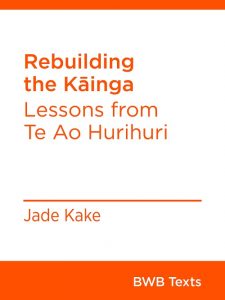 Rebuilding the Kāinga: Lessons from Te Ao Hurihuri – by Jade Kake
Rebuilding the Kāinga: Lessons from Te Ao Hurihuri – by Jade Kake
“Rebuilding the Kāinga charts the recent resurgence of contemporary papakāinga on whenua Māori. Reframing Māori housing as a Treaty issue, Kake envisions a future where Māori are supported to build businesses and affordable homes on whānau, hapū or Treaty settlement lands. The implications of this approach, Kake writes, are transformative.” (from title description page)
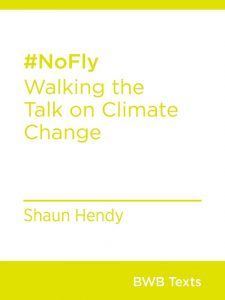 #No Fly: Walking the Talk on Climate Change – by Shaun Hendy
#No Fly: Walking the Talk on Climate Change – by Shaun Hendy
“What happens when a leading New Zealand scientist (and frequent traveller) rules out flying for a year? From overnight buses to epic train journeys, Shaun Hendy’s experiences speak to our desire to do something – anything – in the face of growing climate anxiety. #NoFly confronts the hard questions of one person’s attempt ‘to adapt’. Was this initiative merely symbolic? Did it compromise his work, his life? And has it left him feeling more optimistic that we can, indeed, reach a low-emissions future?” (from title description page)


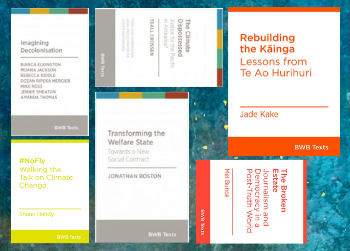
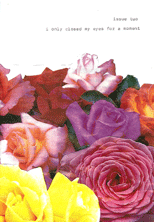 How did you first get into zines? Did someone suggest you to make one?
How did you first get into zines? Did someone suggest you to make one?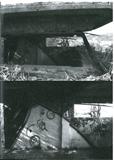 Jon is one of the artists behind the collaborative zine ‘Massage’ – an atmospheric urban art/graffiti zine. Find out more about Jon and his work on his
Jon is one of the artists behind the collaborative zine ‘Massage’ – an atmospheric urban art/graffiti zine. Find out more about Jon and his work on his 
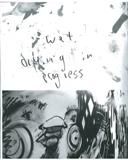 How do you get inspiration for a zine?
How do you get inspiration for a zine? Hayden produces the awesome zine comic ‘Book’ along with Matt Henley and James Rowsell. We have numbers one and three of Book in the zine library waiting eagerly for you to discover (sorry we have no idea what happened to two!). Thanks for answering our questions Hayden!
Hayden produces the awesome zine comic ‘Book’ along with Matt Henley and James Rowsell. We have numbers one and three of Book in the zine library waiting eagerly for you to discover (sorry we have no idea what happened to two!). Thanks for answering our questions Hayden!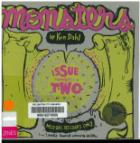
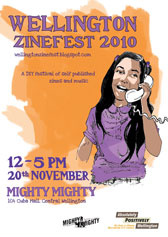 but never much in Wellington. In 2007 Kylie Buck was working at the Wellington City Library, they had just started their zine collection and she and I organised the first Wellington Zinefest, which was also a nice welcome platform for the Library Zine Collection.
but never much in Wellington. In 2007 Kylie Buck was working at the Wellington City Library, they had just started their zine collection and she and I organised the first Wellington Zinefest, which was also a nice welcome platform for the Library Zine Collection.